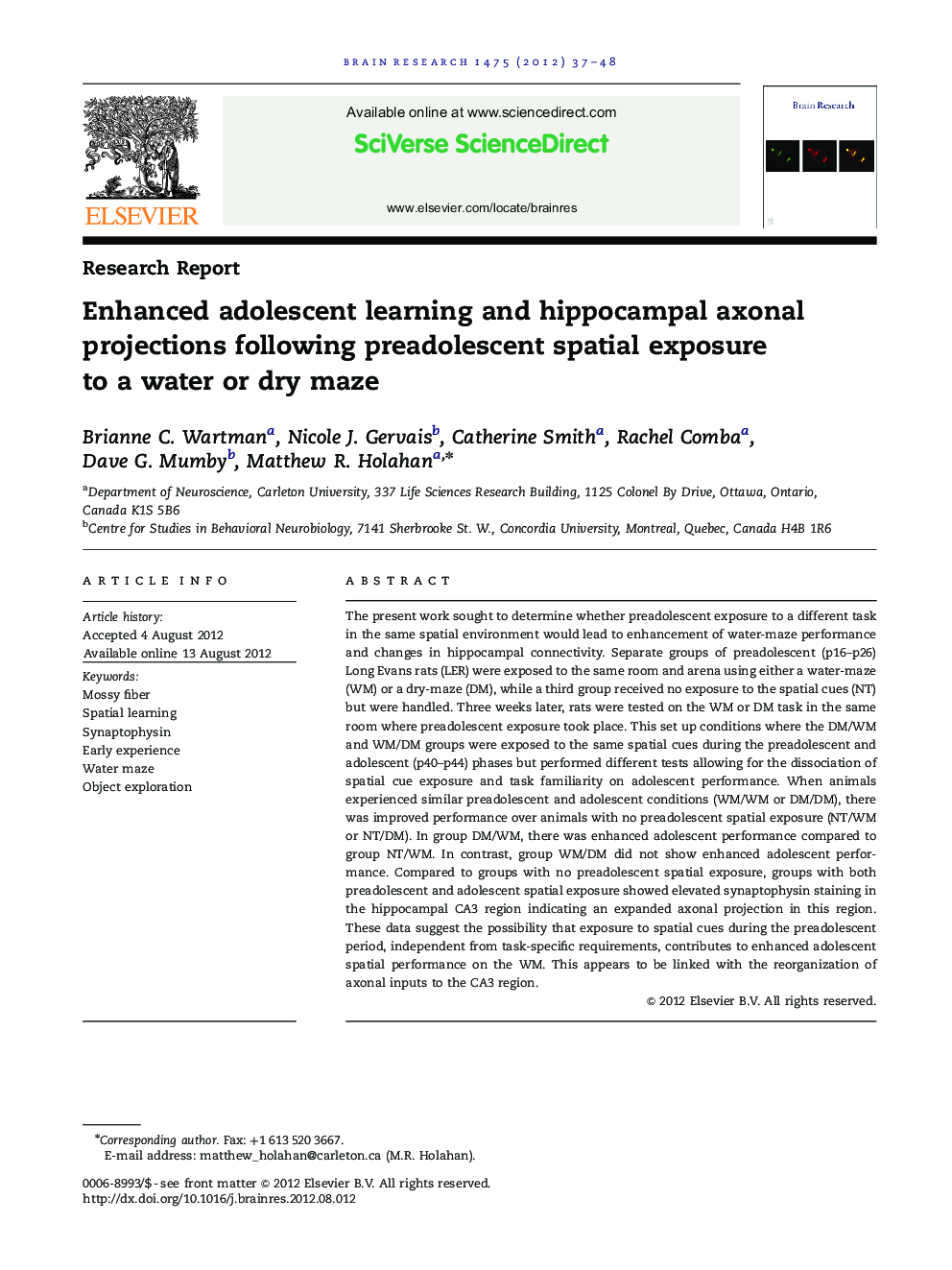| Article ID | Journal | Published Year | Pages | File Type |
|---|---|---|---|---|
| 4325077 | Brain Research | 2012 | 12 Pages |
The present work sought to determine whether preadolescent exposure to a different task in the same spatial environment would lead to enhancement of water-maze performance and changes in hippocampal connectivity. Separate groups of preadolescent (p16–p26) Long Evans rats (LER) were exposed to the same room and arena using either a water-maze (WM) or a dry-maze (DM), while a third group received no exposure to the spatial cues (NT) but were handled. Three weeks later, rats were tested on the WM or DM task in the same room where preadolescent exposure took place. This set up conditions where the DM/WM and WM/DM groups were exposed to the same spatial cues during the preadolescent and adolescent (p40–p44) phases but performed different tests allowing for the dissociation of spatial cue exposure and task familiarity on adolescent performance. When animals experienced similar preadolescent and adolescent conditions (WM/WM or DM/DM), there was improved performance over animals with no preadolescent spatial exposure (NT/WM or NT/DM). In group DM/WM, there was enhanced adolescent performance compared to group NT/WM. In contrast, group WM/DM did not show enhanced adolescent performance. Compared to groups with no preadolescent spatial exposure, groups with both preadolescent and adolescent spatial exposure showed elevated synaptophysin staining in the hippocampal CA3 region indicating an expanded axonal projection in this region. These data suggest the possibility that exposure to spatial cues during the preadolescent period, independent from task-specific requirements, contributes to enhanced adolescent spatial performance on the WM. This appears to be linked with the reorganization of axonal inputs to the CA3 region.
► Rats were exposed to the same room using either a water-maze or dry-maze. ► Tests on the opposite maze were performed to dissociate spatial and task familiarity. ► Spatial exposure on either maze improved water maze performance. ► Spatial exposure on either maze resulted in hippocampal axonal reorganization.
